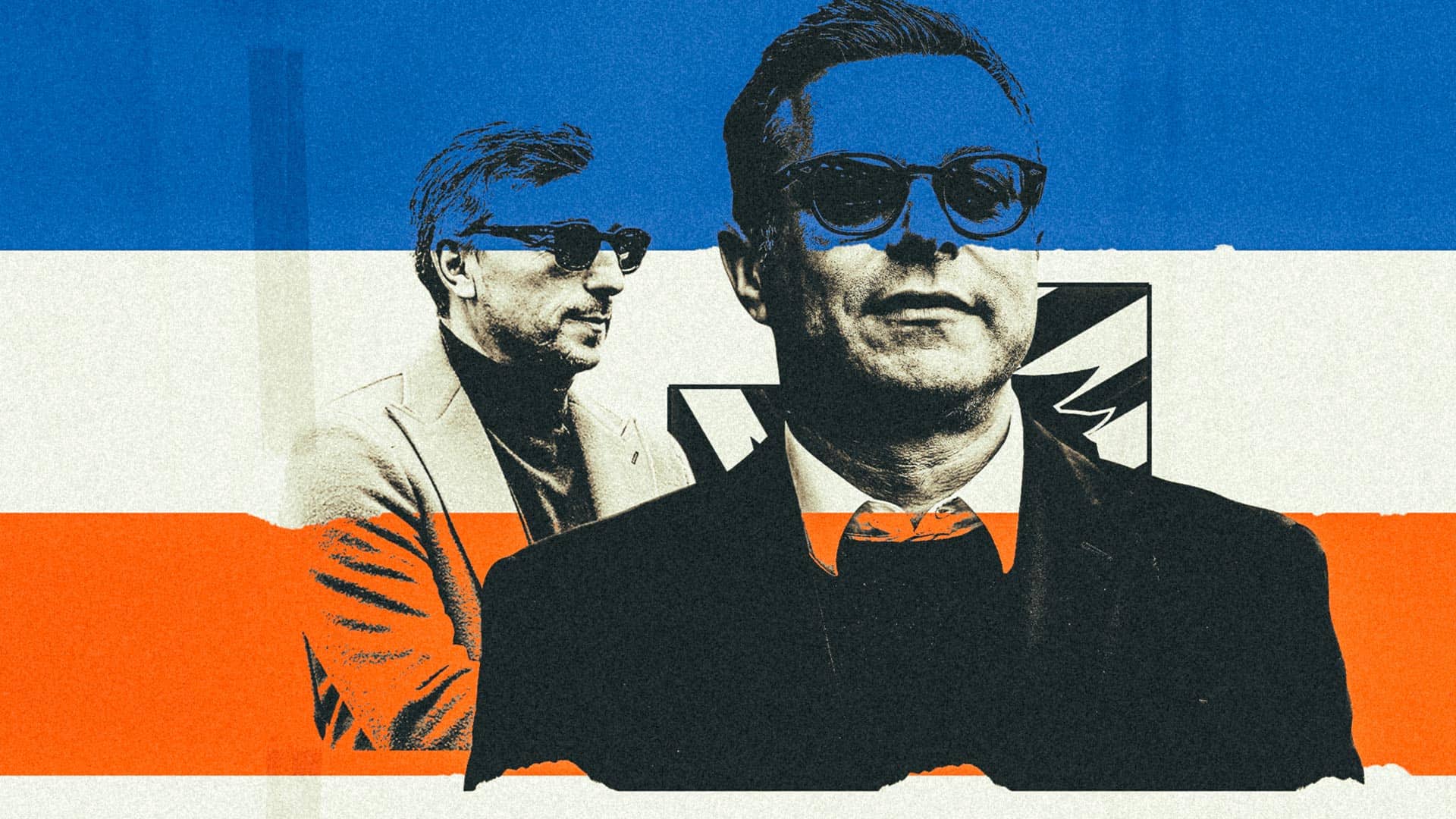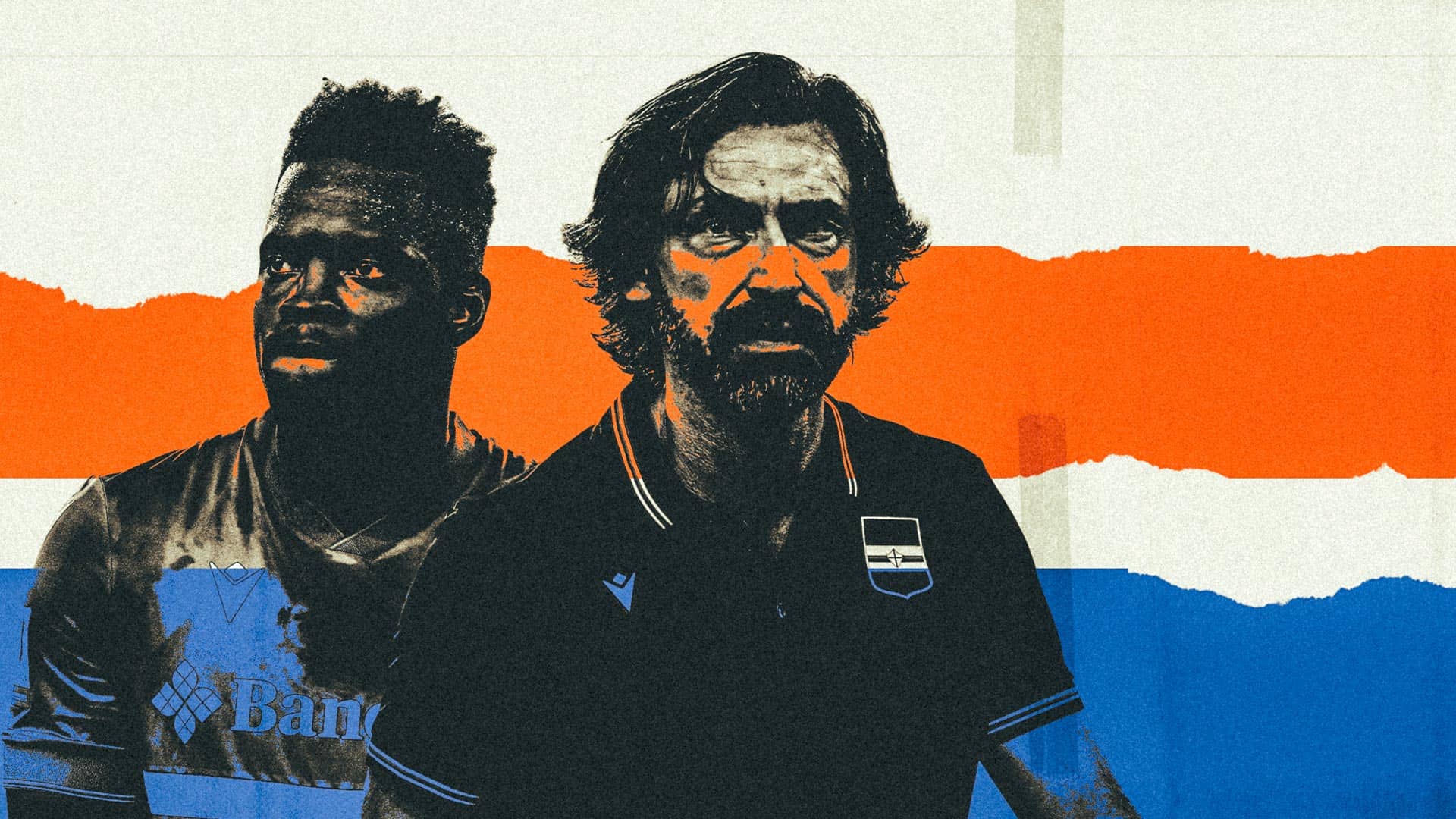Limited Time Discount! Shop NOW!

May 6th, 2023. Sam Allardyce is at the Etihad Stadium in his capacity as the final appointment of Andrea Radrizzani’s ownership at Leeds United. I am 1,000 miles away at Stadio Luigi Ferraris to witness Genoa’s immediate promotion back to Serie A as the song Bellissima by local popstar Annalisa belts out around the ground.
The Genoa fans have rewritten the song’s chorus to mock their fiercest rivals Sampdoria, who are nosediving towards Serie B having won only three games all season. They’re also rumoured to be around £170m in debt and are close to extinction. A month later, Radrizzani bought Sampdoria and sold Leeds, but not before trying to use Elland Road as collateral to secure a bank loan for his purchase of the ailing Italian club.
This was to be his personal redemption, his masterpiece after failing to sell Leeds at their peak in 2021. In theory, he would save Samp from the financial crisis that threatened to expel them from professional football and return them to Serie A. But he didn’t even last a year, exiting his role as ‘saviour’ and selling his shares within one season. So, what happened?
It takes a certain type of, erm, business mind to thrive in the brutal world of Italian football. Someone like Silvio Berlusconi. Massimo Cellino was viewed as a barbarian when he came to England, the widest of wide boys. In Italy, Cellino is still considered a bit mad, but he owned a Serie A club that represented a whole island in Cagliari and is also a former vice-president of the league.
Sampdoria is a name synonymous with the halcyon days of Italian football. The iconic jersey, huge fanbase and team that was briefly glorious in the 1990s. There is something distinctly Leedsy about them, which may have played some role in convincing Radrizzani to buy them. However, like Leeds, it’s a club that can be difficult to tame.
Radrizzani walked away from Leeds as it became time to reap what he, Angus Kinnear and Victor Orta had sown when they fell for their own hubris in taking credit for Marcelo Bielsa’s miracle working at the club. His self-confidence must be unflappable to have approached Sampdoria, who were heavily in debt thanks to the incompetence of their owner, Massimo Ferrero, a man so unpopular that the club’s ultras allegedly sent him bullets in the post with his name on them.
Their situation made Leeds’ capitulation into relegation look normal. Still, Radrizzani progressed his interest in Sampdoria and bought the club alongside Matteo Manfredi, the president of London-based investment firm Gestio Capital, with whom Radz had previous dealings. They were friends, but were they really equipped to firefight through a situation similar to Leeds in 2004?
Manfredi was the money man and Radrizzani provided ‘football expertise’, according to various reports in Italy. Their immediate concerns centred around three months’ unpaid wages and a fast approaching deadline for payment, June 20th, 2023. They made it just in time, largely thanks to Radrizzani’s personal injection of around £5m that allowed them to take control of the club and get an advance on their first parachute payment. Without the funds from Radz, the club would have been unable to register itself in Serie B and forced to restart from semi-professional Serie D.
They still owed tens of millions to various financial institutions, plus there were unpaid tax bills they failed to satisfy in time to avoid a two-point penalty ahead of the start of the 2023/24 season, an infringement that could have seen them excluded from registering for Serie B, but they were granted a reprieve.

With no Victor Orta in his ear whispering names like Thomas Christiansen or Paul Heckingbottom as potential head coaches, Radrizzani chose Andrea Pirlo to lead the new Sampdoria. Pirlo was fresh from an unremarkable spell managing in Turkey, but in his new boss he had a Juventus fan who would have spent years idolising him as a player. Appointing Pirlo was the closest that Radrizzani ever came to imitating Peter Ridsdale, hiring a big name rather than a proven operator.
He also hired Roberto Mancini’s son, Andrea, as sporting director after they sparked a friendship in a London restaurant, and appointed former Juventus defender Nicola Legrottaglie as technical director. A year later, both were out of jobs, replaced by people that Manfredi deemed more suited to the needs of the operation.
After sorting out the unpaid wages in June 2023, Manfredi and Radrizzani set about putting in place an acceptable debt-restructuring plan to repay the banks, tax authorities and other creditors, including a €50m debt from state-backed Covid loans. The proposed plan that the footballing authorities accepted meant Sampdoria could only continue to operate if they end each transfer window with a net profit.
Basically, their spending power amounted to free transfers and loans. Genoa is only a three-hour drive from Monaco, it’s a wonder that Radz didn’t ask Ken Bates if he fancied one last crack at football. After all, he has experience in making debts disappear and spending next to nothing on mediocre footballers.
Sampdoria signed eleven new players without spending a single cent in transfer fees and reintegrated some players considered dead wood by the previous regime, like former Leeds midfielder Ronaldo Vieira. Radrizzani may have arrived at the club promising a new era, dangling his ‘friends’ at PSG as possible investors, but the more austere reality made for tempered ambitions among fans.
Their reprieve also caused consternation in the south of Italy. Reggina, the club from Reggio Calabria on the toe of the Italian boot, were facing bankruptcy in June 2023. They had just lost in the Serie B play-offs but were skint due to the usual financial mismanagement that these tales of woe often offer up.
Reggina had unpaid and overdue tax bills, as well as other debts, and put in place their own proposed debt-restructuring plan. But due to the unpaid tax bills, the club were booted out of Serie B and forced to declare themselves insolvent, while Sampdoria were only given a two-point deduction for a similar, if not identical, infringement.
This infuriated commentators and journalists in Calabria, the province in which Reggio Calabria is located. Accusations of political manipulation were levelled at the FIGC, Italy’s football association, and its president Gabriele Gravina.
Some claimed that Reggina were treated differently because they’re from the poorer south of Italy, while Sampdoria benefitted from the protections afforded to northern clubs that have the money and power behind them. What should have been a financial and sporting debate became a socio-economic issue, not helped by president Gravina’s own history.
He became famous in Italy for his role in Castel di Sangro’s rise from amateur football to Serie B in the 1990s. This was a club hailing from a town of less than ten thousand people, funded by a mysterious character, Pietro Rezza, whose origin story insinuates involvement with Neapolitan organised crime. Gravina married Rezza’s niece and eventually became director of Castel di Sangro during their glory days.
American writer Joe McGinniss spent the 1996/97 season following Castel di Sangro around Italy in their maiden Serie B campaign and — spoiler alert — essentially accused Gravina of being a corrupt adulterer who was involved in what McGinniss believed to be match-fixing in Castel di Sangro’s dead rubber final game of the season. His words, not mine.
Two decades later, Gravina became president of the Italian FA and was accused of playing his part in ensuring Sampdoria were saved from what many believed to be their fate, while failing to save Reggina from a comparable situation. It’s Italian football. It’s politics and entrenched north-vs-south classism that exists in nearly every European country. It’s lacking in facts but it makes for a juicy story nonetheless.

It’s difficult to pinpoint an exact moment that triggered the downfall of Radrizzani at Sampdoria, but an interesting theory is that it began during a lunch between him and Zlatan Ibrahimovic in Milan.
Ibrahimovic had just retired from playing and was considering his next move. Radrizzani had been absent from Sampdoria’s last three matches as they reached seven without a win following their opening day victory at Ternana. Just as local media began questioning if the new ownership were taking Samp in the right direction, and rightly asking why a leading figure had vanished from the action, Radz was pictured with the man he claimed he once tried to sign for Leeds.
Was this a sign that the club were about to replace the under-pressure Pirlo with another inexperienced high-profile name? Who knows. But it certainly didn’t stop a media frenzy that only fizzled out when one reporter took it too far and suggested that Samp were lining up Garry Monk as Pirlo’s potential replacement.
This unwelcome distraction came only two weeks after Cellino accused Radrizzani of failing to pay an outstanding £1m instalment for the purchase of Elland Road in 2017. Cellino threatened to “seize Sampdoria’s shares” as payment. Was that even possible? No. Radz might not even have owed Cellino any money. Regardless, it was unwanted publicity in Sampdoria’s eyes.
They entered the October international break with points (including the two deducted) and sat at the foot of the Serie B table after nine games. After the break, they won four of their next five matches and stories started to emerge in the local news of Manfredi becoming an increasingly active participant while Radrizzani was mentioned as having a ‘more low-profile position’ by Genovese newspaper Il Secolo XIX.
Manfredi was seen as the reference point for the investors, several of whom have ties to Singapore and were reported to have been involved thanks to Radrizzani’s connections in that part of the world. The talk of PSG/Qatari involvement quietened down after November 2023, at which point it was increasingly clear that Manfredi was now de facto club president, acting alone.
Radrizzani was last seen at a Sampdoria game just before Christmas last year, around the same time he addressed his situation at the DLA Piper Sport Forum in Milan: “There is nothing to hide. Manfredi will provide the information when he deems it appropriate.” A vague statement that neither confirmed nor denied his involvement, something which was only cleared up in March 2024 after Manfredi was officially named president.
“Radrizzani is a friend,” Manfredi said. “Right now, he’s no longer involved. He has sold his shares.”
The Genoa media seemed to move on rather quickly, focussing on the task at hand as Sampdoria chased an immediate return to Serie A through the play-offs, a challenge that ended in the preliminary round with a loss to Palermo.
They recruited aggressively this summer, bringing in proven Serie B experience in a way they failed last year. Many believe their market approach has been aided by Andrea Mancini’s replacement, Pietro Accardi, who is deemed a better fit for the role. Pirlo has also been sacked, a three-game winless run to start the season enough for Manfredi to opt for the more experienced Andrea Sottil.
This is very much now Matteo Manfredi’s club, one where the name Andrea Radrizzani is very rarely mentioned. To Sampdoria, our former owner is just the guy who popped up to save them from bankruptcy and move on after six months. Not quite Ken Bates, not quite Andrea Radrizzani. ⬢
This article is free to read from issue two of this season’s TSB magazine, which also features an interview with former United striker Simon Johnson, some of the weirdest Leeds shirts we ever seen, and Gary Sprake’s nudger. Get your copy here, or become a TSB+ member to read all the articles online.
Copyright © The Square Ball Media Limited All Rights Reserved
WordPress Development By Clio Websites